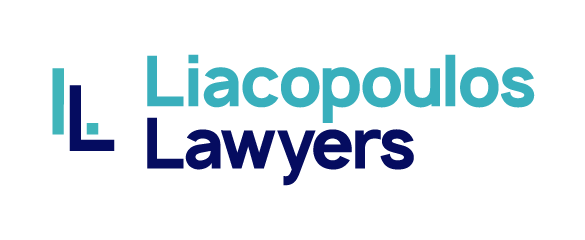The recent decision of prominent Australian artist John Olsen to launch legal proceedings against his stepdaughter, Karen Mentink, for her actions immediately prior to
wife’s death has attracted media attention. This matter is an example of nature of elder abuse, its devastating impact on families and the importance of proper Estate Planning as a means of protection against elder abuse.
The Olsen’s 27 year marriage was devastated in 2016 by Mrs Olsen’s dramatic personality change as a result of two brain tumours. Although the tumours were removed in June of that year, by October Mrs Olsen was given a terminal diagnosis and remained in a vulnerable state, suffering from what Mr Olsen described as “cognitive impairment”. In the days immediately following her diagnosis, Mrs Olsen was driven to the bank by her daughter and made out the first of several cheques which Ms Mentink purports were ‘gifts’.
The validity of these withdrawals and other matters are now in question before the NSW Supreme Court. Ms Mentink denies her mother was cognitively impaired at the time.
Reading the media coverage of this case, I immediately had several questions that I had previously asked in the context of Estate matters I have been involved in:
In the meantime, there are steps that can be taken and measures which can be put in place in an individual’s Estate Plan. Formalizing your Estate Plan whilst you are still able should not be delayed or taken lightly, as no doubt the Olsen family are unfortunately now realising.
wife’s death has attracted media attention. This matter is an example of nature of elder abuse, its devastating impact on families and the importance of proper Estate Planning as a means of protection against elder abuse.
Background
Mr Olsen claims in the month before his wife’s death, Ms Mentink exerted undue influence over her mother Katherine Olsen. This caused Mrs Olsen to rewrite her Will and make Ms. Mentink a signatory on all of her late mother’s bank accounts, enabling her to transfer $2.17 million to herself from the couple’s joint account.The Olsen’s 27 year marriage was devastated in 2016 by Mrs Olsen’s dramatic personality change as a result of two brain tumours. Although the tumours were removed in June of that year, by October Mrs Olsen was given a terminal diagnosis and remained in a vulnerable state, suffering from what Mr Olsen described as “cognitive impairment”. In the days immediately following her diagnosis, Mrs Olsen was driven to the bank by her daughter and made out the first of several cheques which Ms Mentink purports were ‘gifts’.
The validity of these withdrawals and other matters are now in question before the NSW Supreme Court. Ms Mentink denies her mother was cognitively impaired at the time.
Questions this matter raises
The dramatic facts of this case and the relationship ending allegations of undue influence, duress and unconscionable conduct between family members reflect the devastating nature of elder abuse and the complexity of estate litigation. As an estate lawyer, I have been involved in a number of such cases where families are bitterly divided and emotionally charged whilst grieving the loss of a loved one. The emotions behind such sensitive matters requires the legal representatives of families in dispute to ensure their client remains rational, level headed and strategic when telling their ‘side of the story’.Reading the media coverage of this case, I immediately had several questions that I had previously asked in the context of Estate matters I have been involved in:
- Who was Mrs Olsen’s guardian or administrator?
- Did Mrs Olsen have a valid Power of Attorney appointing a financial attorney?
- Were the transfers effected during Mrs Olsen’s lifetime performed by someone in their capacity as Mrs Olsen’s administrator or financial attorney, or in their capacity as a signatory to the account?
- What are the duties and obligations of an account signatory to the actual account holder?
- How was Ms Mentink able to be added as a signatory to the bank accounts? Is the bank liable for allowing signatories to be added?
- In what circumstances was Mrs Olsen’s new Will made? Do the lawyer’s file notes indicate that assessments of her capacity were made?
- If the Will is valid, can Mr Olsen challenge Mrs Olsen’s estate? Is there possibly a better suited claimant?
What can be done to protect against these sorts of issues?
Of course hindsight makes this approach clearer and whilst no solution is perfect, there are several steps which can be taken to ensure one’s Estate Plan can protect them from elder abuse and avoid family conflict of this kind. For example:- Consider having effective and comprehensive Financial Powers of Attorney that require multiple attorneys (or agents) to act on your behalf, who can jointly make or execute financial decisions.
- If a loved one is susceptible to elder abuse on account of diminished capacity, consider acting quickly to appoint a guardian(s) or administrator(s) and even consider seeking out someone independent to take on this role.
- If you are considering making a will, do not delay it because your personal, health and financial circumstances may change at a later date, which may raise doubt the validity of your Will and final wishes.
- Consider whether or not a contract to make mutual Wills is an appropriate and effective mechanism.
In the meantime, there are steps that can be taken and measures which can be put in place in an individual’s Estate Plan. Formalizing your Estate Plan whilst you are still able should not be delayed or taken lightly, as no doubt the Olsen family are unfortunately now realising.

